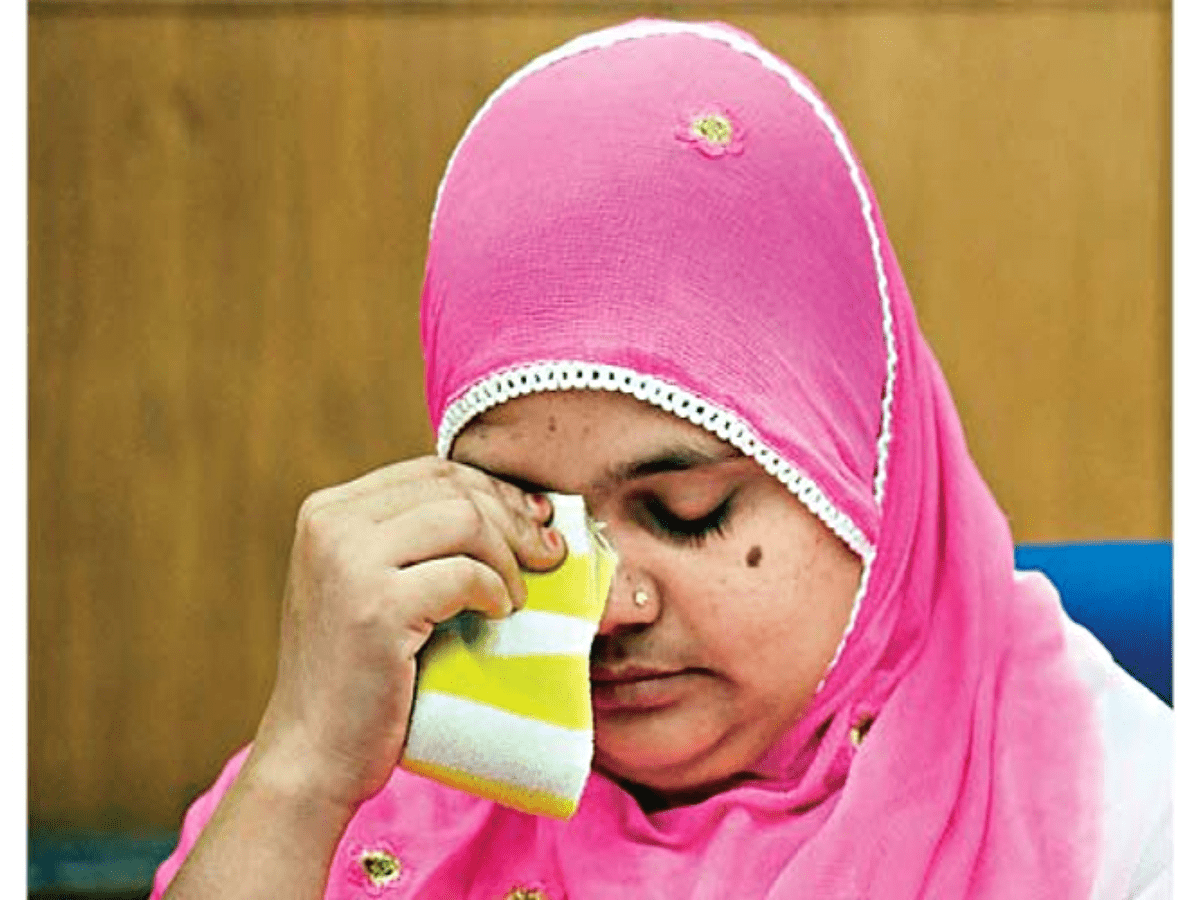
New Delhi: The Supreme Court on Tuesday agreed to examine a plea challenging the remission granted to the 11 who were convicted for the rape and murder in the 2002 Bilkis Bano case.
The plea was filed by CPI(M) leader Subhasini Ali, independent journalist and filmmaker Revati Laul and former philosophy professor and activist Roop Rekh Varma.
The plea was mentioned by advocate Aparna Bhat and senior advocate Kapil Sibal before a bench headed by Chief Justice N V Ramana, Justices Hima Kohli and C T Ravikumar. The counsel submitted that they are challenging the remission order, and emphasised that a pregnant woman was raped and people were killed.
The bench queried the council if they were granted remission by virtue of the top court order. Sibal replied that the apex court merely directed the state to consider the matter, and they were challenging the remission, not the top court order.
The bench said, “we will see”. Bhat urged the court to list the matter for Wednesday. The bench replied, “let us see the papers”.
Mahua Moitra Challenges SC
Meanwhile, Trinamool Congress leader Mahua Moitra has moved the Supreme Court challenging the Gujarat government’s decision of releasing the 11 convicts guilty of gang rape and mass murder.
Moitra filed a PIL (public interest litigation) through advocate Shadan Farasat which stated concerns over the safety of Bilkis Bano and her family.
Bilkis Bano Tragedy
Twenty years ago, on February 28, 2002, Sabarmati Express carrying karsevaks was set on fire in Godhra station. What followed the attack on the train were riots that claimed the lives of thousands of innocent victims, mostly Muslim families.
Bilkis Bano, who was a little less than 21 years of age and five months pregnant at that time, tried to flee the state with her family, including her three-year-old daughter – Sahela.
March 3, 2002, the family reached Pannivel village and took refuge in a field. However, they were soon cornered by 20-30 Hindu men, armed with sticks, sickles, and swords.
As they shouted, ‘Aa rahya Musalmano, emane maaro, kaato,’ (these are the Muslims, kill them, cut them’) Bilkis recognized many faces.
What followed was a blood bath and a cry for mercy as one by one Bilkis’s family members were killed. Four women including Bilkis and her mother were brutally gang raped and assaulted. One of the accused – Shailesh Bhatt – snatched Bilkis’s daughter from her arms and smashed the toddler’s head onto the ground, killing her instantly.
Fifteen of her family members were killed that day. Her cousin who had given birth to a baby girl the previous day was brutally ripped off, raped, and killed along with her infant. Bilkis was left naked, bleeding, and unconscious. Since Bilkis was the lone survivor and eyewitness of the murders, she went through the ordeal of identifying the bodies, including her toddler. She also underwent a medical examination four days after her rape.
After fighting the case for six long years, on January 18, 2008, the special court in Mumbai sentenced the 11 accused to life imprisonment (one had died) and arrested a policeman for three years for trying to destroy evidence.
(With inputs from the desk)

